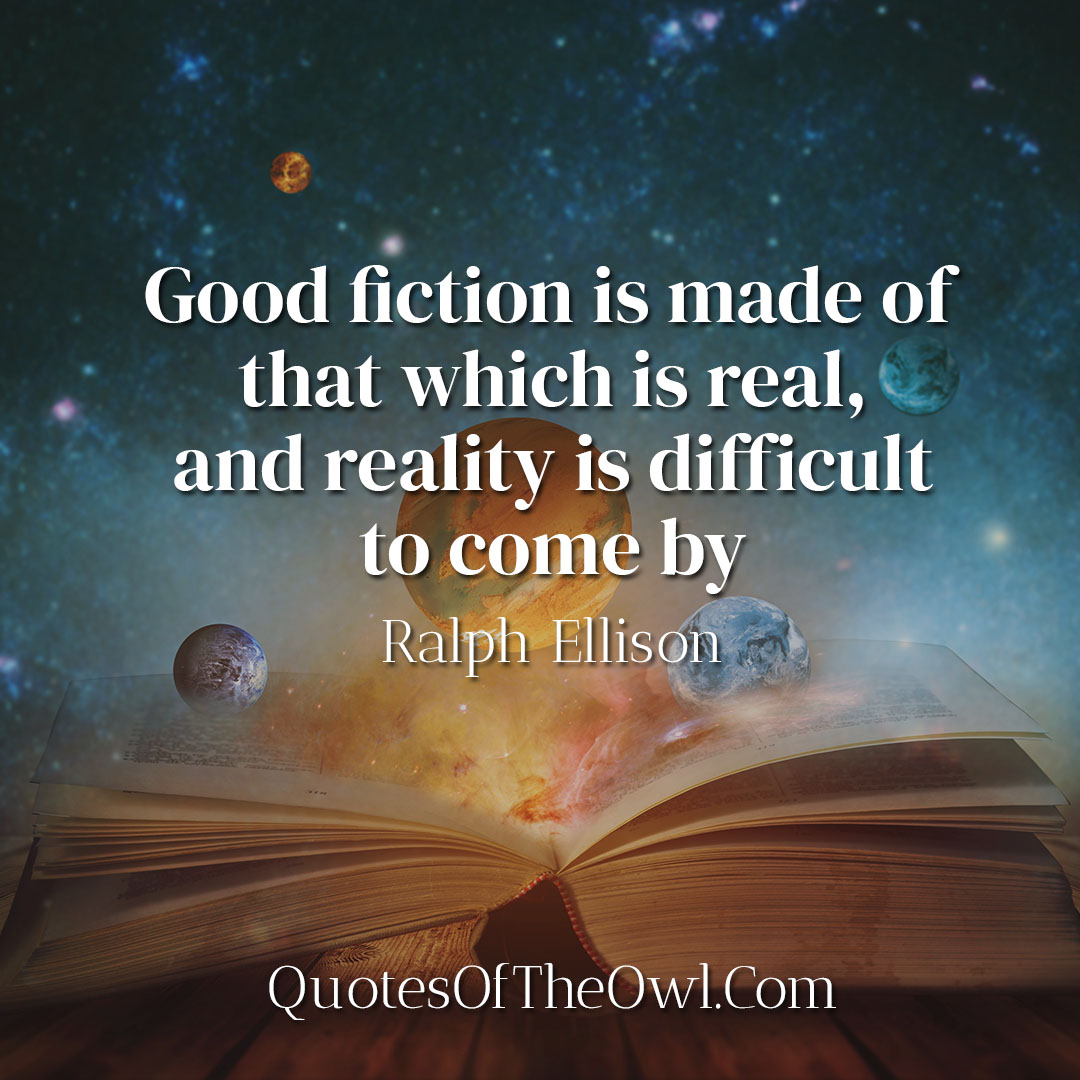What is the meaning of Ralph Ellison’s Quote “Good fiction is made of that which is real, and reality is difficult to come by”?
Ralph Ellison, an influential American writer, once stated, “Good fiction is made of that which is real, and reality is difficult to come by.” This thought-provoking quote encapsulates the essence of Ellison’s perspective on the power and significance of fiction. In this article, we will delve into the meaning behind Ellison’s words, exploring the challenges of capturing reality in literature, and the various interpretations of his profound statement.
Understanding Ralph Ellison’s Quote
Exploring the Meaning of “Good Fiction”
According to him, good fiction goes beyond surface-level storytelling; it transcends mere entertainment and delves into profound truths about the human condition. It possesses the ability to reflect and illuminate the realities of life, society, and the individual’s experiences.
The Significance of Reality in Fiction
Ellison emphasizes that “good fiction is made of that which is real.” Fiction, at its core, should draw inspiration from reality and be grounded in genuine human experiences. By incorporating elements of reality, such as authentic emotions, relatable characters, and vivid settings, this literary genre becomes a powerful medium for connecting with readers on a deeper level.
The Difficulty of Capturing Reality
Ellison acknowledges that reality is challenging to come by. The complexities of human existence, the vastness of experiences, and the subjective nature of truth make it a daunting task for writers to faithfully capture reality in their works. However, it is precisely this difficulty that makes the pursuit of genuine representation in fiction all the more valuable and rewarding.
Interpretations of Ellison’s Quote
Emotional Truth
One interpretation of Ellison’s quote suggests that “that which is real” refers to the emotional truth embedded within good fiction. It implies that great works of literature evoke genuine emotions and resonate with readers on an emotional level. By tapping into the universal aspects of human experience, fiction can offer profound insights into the complexities of our feelings, struggles, and triumphs.
Authenticity and Relatability
Another perspective on Ellison’s quote highlights the importance of authenticity and relatability in fiction. Good fiction should provide readers with characters, narratives, and themes that they can connect with and find relevance in their own lives. By crafting relatable stories, authors create a bridge between the fictional world and the readers’ reality, fostering a deeper engagement and understanding.
Social Commentary and Reflections
Ellison’s quote can also be interpreted as an invitation for writers to explore social issues, cultural dynamics, and historical contexts within their works. Fiction, when infused with astute observations and thought-provoking social commentary, can serve as a powerful tool for reflecting on and critiquing society, shedding light on hidden truths, and prompting meaningful conversations.
Ellison’s Legacy and Influence
Ralph Ellison’s quote still resonates with both writers and readers. It encapsulates the lasting power of fiction in conveying profound truths about our world. Ellison’s own influential work, including the acclaimed novel “Invisible Man,” exemplifies his dedication to capturing the complexities of reality. Additionally, his writing engages with social and political themes.
Conclusion
In conclusion, Ralph Ellison’s quote, “Good fiction is made of that which is real, and reality is difficult to come by,” encapsulates the essence of the profound relationship between fiction and reality. It emphasizes the significance of incorporating authentic elements of human experience in storytelling and acknowledges the challenges writers face in capturing the complexities of reality. By exploring emotional truth, authenticity, relatability, and social reflections, imaginative writing can serve as a powerful medium for connecting with readers and offering profound insights into the world we inhabit.

